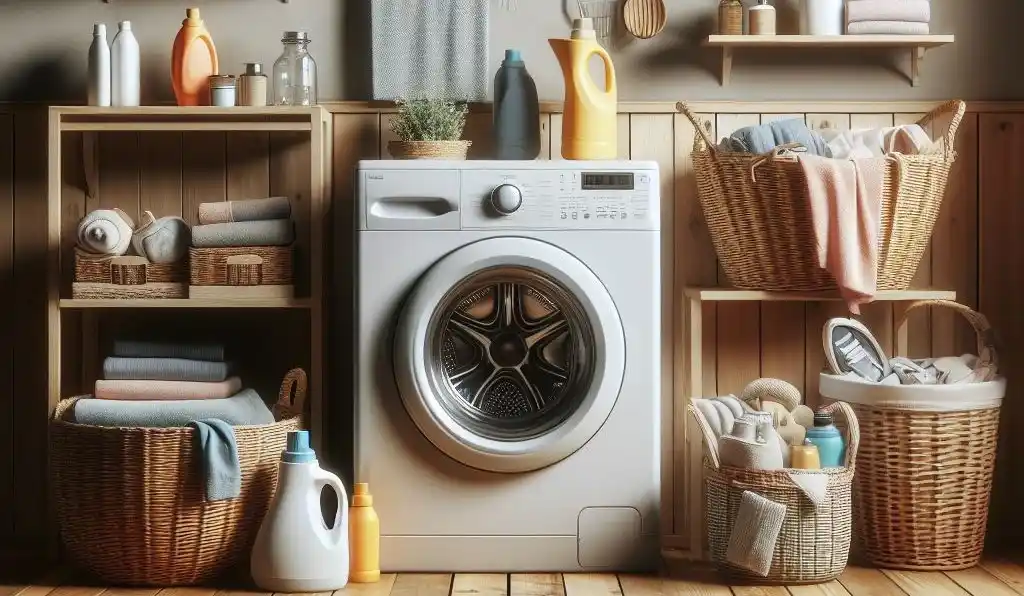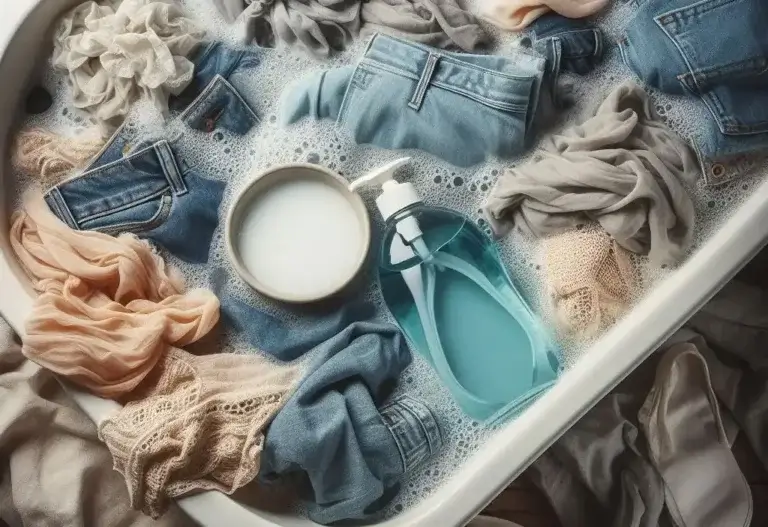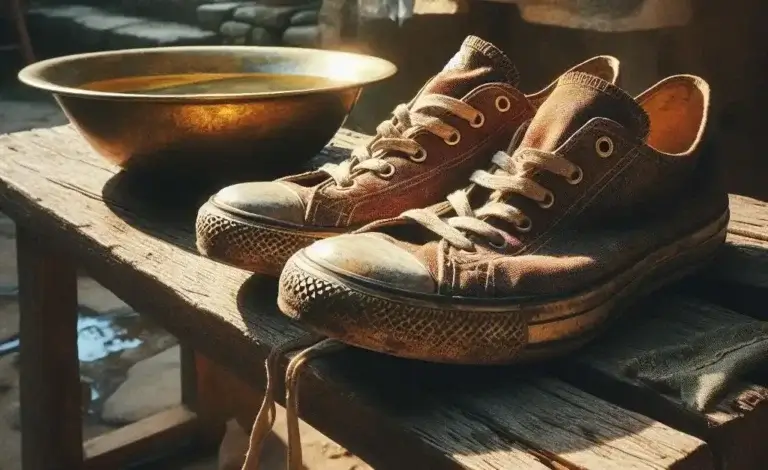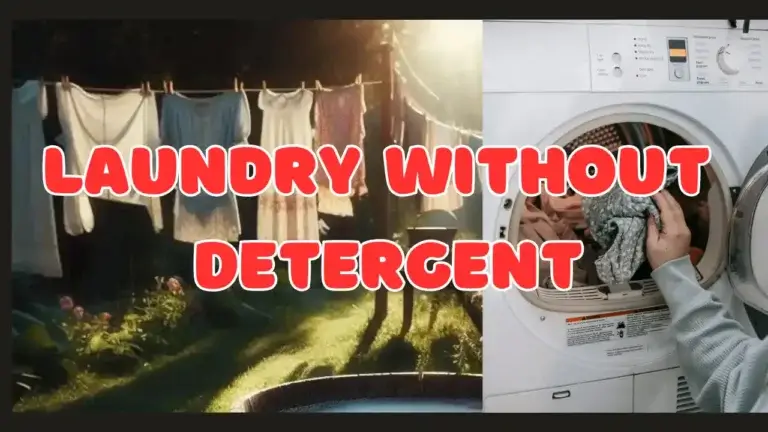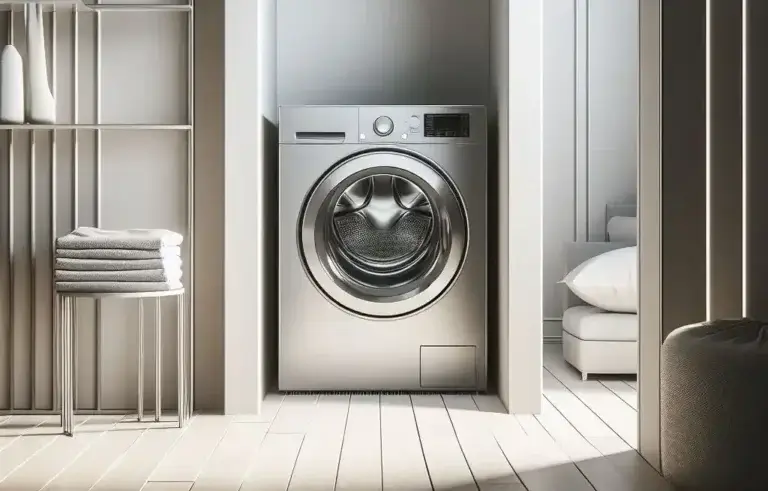Is It OK to Do Laundry in Freezing Weather in Winter? Doing Laundry in Extreme Cold Weather
As the cold weather sets in, affecting how you do your laundry, and temperatures start dropping below freezing, you may be wondering about the right temperature for laundry. Extremely cold temperatures can present some challenges when it comes to washing and drying clothes. In this comprehensive guide, we’ll cover everything you need to know about doing laundry in frigid winter weather.
This comprehensive guide covers is it ok to do laundry in freezing weather in winter and much more laundry-related information in extremely cold weather.
Table of Contents
How Cold Temperatures Can Affect Washing Machines and Dryers
Your household appliances, including ones you use to dry the clothes, become vulnerable when the mercury dips below 32°F (0°C). Here’s an overview of how freezing temperatures can impact your laundry equipment:
- Water Intake Valves: The washer’s water intake valve can freeze up when temperatures are below freezing. This can prevent water from entering the machine properly.
- Hoses: Rubber hoses can become stiff and prone to cracking in cold temperatures. This makes them more likely to spring a leak.
- Ice Maker and Pumps: Some washers have drain pumps that push water out. These may stop working properly when they freeze up.
- Longer Dry Times in extremely cold weather: In cold weather, clothes take longer to dry, even in dryers. The lack of humidity in winter air is to blame.
So while regular laundry detergent ingredients don’t necessarily change with the seasons, doing laundry when it’s below freezing does require some special care and preparation.
Where Should You Keep Your Washer and Dryer in Cold Weather?

Ideally, your washing machine, ice maker and clothes dryer should be located in a heated indoor area during winter to keep your pipes from freezing. But for many homeowners, the laundry equipment is tucked away in a cold basement, drafty garage, or separate laundry outbuilding. Here are your options if that’s your situation:
- Run a space heater: You can use a small electric space heater to warm up the room enough to prevent freezing issues. Just be mindful of electrical load and fire risks, especially in colder weather in your laundry room.
- Insulate pipes and hoses: Cover any exposed water lines and washer hoses with special insulation sleeves or heating tape. This is especially important when you want to clean your clothes in cold weather. This helps block cold air and prevent the washer from freezing.
- Drain hoses completely: Always drain washers after use so standing water doesn’t remain in the hoses where it can freeze.
- Vent dryers properly: Make sure vent ducting is as short as possible. Keep the outdoor vent hood clear of snow buildup so moist exhaust can escape, particularly when trying to dry the clothes outdoors on a clothesline. Long vents full of cold air can ice up.
- Let faucet drip: If laundry water lines in the laundry room aren’t well insulated in degrees celsius, allow connected faucets to slowly drip. This keeps water moving through pipes and reduces the risk of you needing to resort to sublimation to dry your clothes.
With the correct winterizing precautions, such as using a space heater, you can safely keep using laundry equipment and dry clothes in unheated areas when temperatures plunge below 32 degrees Fahrenheit. Prevent pipes from bursting and machines from freezing up with proper insulation, heating, and water drainage.
How Extreme Cold Weather Affects Other Home Appliances
Frigid temperatures don’t only impact washers and dryers. Your heating, cooling, refrigeration, and even lighting fixtures are also vulnerable when mercury plunges. Here’s an overview:
Furnaces and Air Conditioners
- Frozen condenser coils – HVAC condenser coils filled with refrigerant fluid are prone to icing when temperatures drop. Frozen coils prevent proper airflow.
- Overworked furnace Imagine drying your clothes outdoors – the very cold outdoor temperatures would make your task extra hard. This leads to more wear-and-tear over time.
- Failed components may make you struggle to dry your clothes outdoors. – Pieces like blower motors, capacitors, and compressors wear out faster when run heavily during cold snaps.
To protect HVAC systems, change filters monthly, have a technician inspect the furnace in fall/winter, and keep the condenser unit clear of snow buildup. Running a humidifier can also take pressure off heating equipment.
Refrigerators and Freezers
- Leaking water – The defrost mechanism for fridges and freezers can malfunction when ice builds up. This causes water to drip down into fridge compartments from the freezer.
- Failed compressors in freezing temps. – Refrigeration compressors activate more frequently to maintain cool temps in frigid weather. This strains the components and can shorten their lifespan.
- Power failures in extremely cold weather. – Loss of power combined with freezing weather is disastrous. Food spoils rapidly if refrigerators/freezers can’t run. Consider getting a generator as backup.
To keep refrigeration appliances working smoothly in winter, maintain good door seals, cover vents/cracks exposing the condenser coil, and avoid opening doors more than necessary so cold air stays inside.
Electronics and Lighting
- Damaged batteries – Extreme cold rapidly drains lead-acid and lithium-ion batteries in things like lamps, smart speakers, etc. Storing gear with batteries in unheated areas shortens lifespan.
- Diminished lighting due to extremely cold weather. – Cold temperatures make plastic and resin parts in lighting fixtures brittle, this tends to happen in extremely cold weather. Components like sockets and wiring insulation become fragile and fail faster. The winter doldrums claim more bulbs when it’s icy out!
- Broken plumbing – If indoor sinks/toilets in your laundry room share uninsulated exterior walls, connected pipes may freeze and burst in home spaces without heat during freezing temps. Copious leaks damaging furniture and finishes can result.
You can’t control the frigid winter weather outdoors, but you can take appropriate steps to shelter vulnerable appliances and equipment in your laundry room. Stop problems, like frozen pipes or improperly dried clothes due to weather affecting your laundry, before they start!
Is It Ok to Do Laundry in Freezing Weather in Winter

Alright, you’re actually onto the main event – laundry strategies for when the weather outside is affecting your laundry routines due to its frightful conditions! Here are tips to safely wash and dry clothes despite the cold:
Check Appliance Locations
- Ensure washing machines and clothes dryers are in heated indoor areas, not cold basements or drafty outbuildings.
- If using laundry equipment in unheated spaces can’t be avoided, take preventative measures like insulating washer’s hoses with pipe insulation.
- Check that the dryer vent ducting is as short/straight as possible and that the outdoor vent flap opens properly.
Adjust Washer Settings
- Run appliance-safe antifreeze through washer hoses first before connecting water lines. This prevents standing water in hoses from freezing between uses.
- If possible, use only cold water tap settings until temperatures climb above freezing again. This reduces the risk of ice blockages.
- Presoak extremely cold water in buckets before adding to washers if sensors prevent very chilly water from entering the washer. This helps heat it up a bit first.
- Ensure washing machines drain fully after each use to limit water remaining in pumps/hoses.
Dry Carefully
- Clean lint traps before every load to maximize air circulation and drying efficiency.
- Run an extra spin cycle in washers to remove maximum moisture before transferring to dryers.
- If clothes take multiple runs to dry fully, allow proper cool-down time for dryers between cycles.
- Dry similar fabric weights together to balance drying time. Heavyweight items like towels or jeans take longer than lightweight shirts to dry, especially in colder temperatures or when doing laundry in freezing temperatures. Don’t mix and match clothes in extremely cold weather.
- Note that it typically takes far longer for laundry to dry in winter than during warmer weather!
Have Backup Plans
- Line dry laundry indoors or use a drying rack if mechanical dryers seem overworked by winter weather. You could also hang your clothes up high to dry by using a pod.
- Designate a backup laundry day each week in case winter storms/power failures postpone washing at the usual time.
- Avoid doing first-time laundry right before important travel dates or events during the winter. Sudden appliance issues or lengthy drying times could ruin plans!
FAQs: Laundry in Freezing Temperatures
You probably still have some unanswered questions about managing laundry operations during frigid winter conditions or laundry in winter. Below are answers to some questions that concern how weather affects laundry equipment and the proper temperature for laundry:
Q: Is it safe to keep using my washing machine once outdoor temperatures drop below freezing?
A: With proper precautions, it’s possible to safely keep using washing machines despite below-freezing temperatures outdoors. Make sure hoses and pipes are insulated for extremely cold weather, drain all water after cycles finish, and run an antifreeze solution through before connecting water lines after prolonged shutdowns in your laundry room. Check that water still flows properly before starting wash loads.
Q: Why is it taking so much longer for my laundry to dry in winter?
A: Winter air holds less moisture compared to muggy summer air. This means it takes extra dryer run time for ambient air to absorb enough water from wet laundry. Longer vent runs to exterior vents and lint buildup can worsen the problem. Using dryer balls, reducing loads, cleaning vents, and not overloading the drum all help combat protracted winter drying sessions.
Q: Can I hang clothes outside to dry when it’s cold?
A: Outdoor clothes drying or clothes out to dry is not advised when temperatures drop below freezing, especially for delicate fabrics like knits and underwear. Not only will laundry likely freeze stiff instead of drying, but clothes can become abrasive and damaged flapping in the wind. If you must line dry laundry outdoors, use durable items like jeans or towels.
Q: What temperature is too cold for my HVAC system to work properly?
A: Most heating and cooling professionals recommend auxiliary emergency heat or repair service if outdoor temperatures drop to 30° below zero or lower. Extreme cold causes HVAC systems to freeze. Sometimes you may see ice instead of water, and components tend to fail. Prevent problems by replacing filters monthly, inspecting equipment pre-season, and keeping outdoor units clear of snow buildup and debris blockages.
Q: Why does my washing machine fill with water slowly when it’s freezing outside?
A: Slow water flow in your laundry in cold happens because extremely cold temperatures cause the washer’s water intake valve to stiffen and resist opening fully. Check that the water supply is actually on. You can try heating the room or aiming a hairdryer at the valve area to loosen things up. Insulating or replacing old hoses can help prevent stiff valves altogether.
In Conclusion
Doing laundry and attempting to dry their clothes during temperatures below 32 degrees Fahrenheit takes more effort and pre-planning compared to warmer seasons. But with the proper winterizing strategies like insulating your washer’s hoses with pipe insulation, outlined above, you can keep appliances like washers and dryers safely washing and properly drying loads despite Old Man Winter’s frosty temper.
The keys are insulating vulnerable components like pipes and hoses, allowing for extra drying time, draining systems fully after use, and having backup drying options available. Adjusting habits to use laundry equipment as little as possible when it’s extremely cold out also helps everything operate more smoothly.
While chilly temperatures can present challenges, taking appropriate precautions makes it possible to keep dirty clothes from piling up, even when frost covers the ground. Just bundle up and make sure your appliances, like the washer and ice maker, can likewise handle the cold!
I hope these tips give you the confidence to take on laundry operations despite the winter chills. Stay cozy and warm out there!

